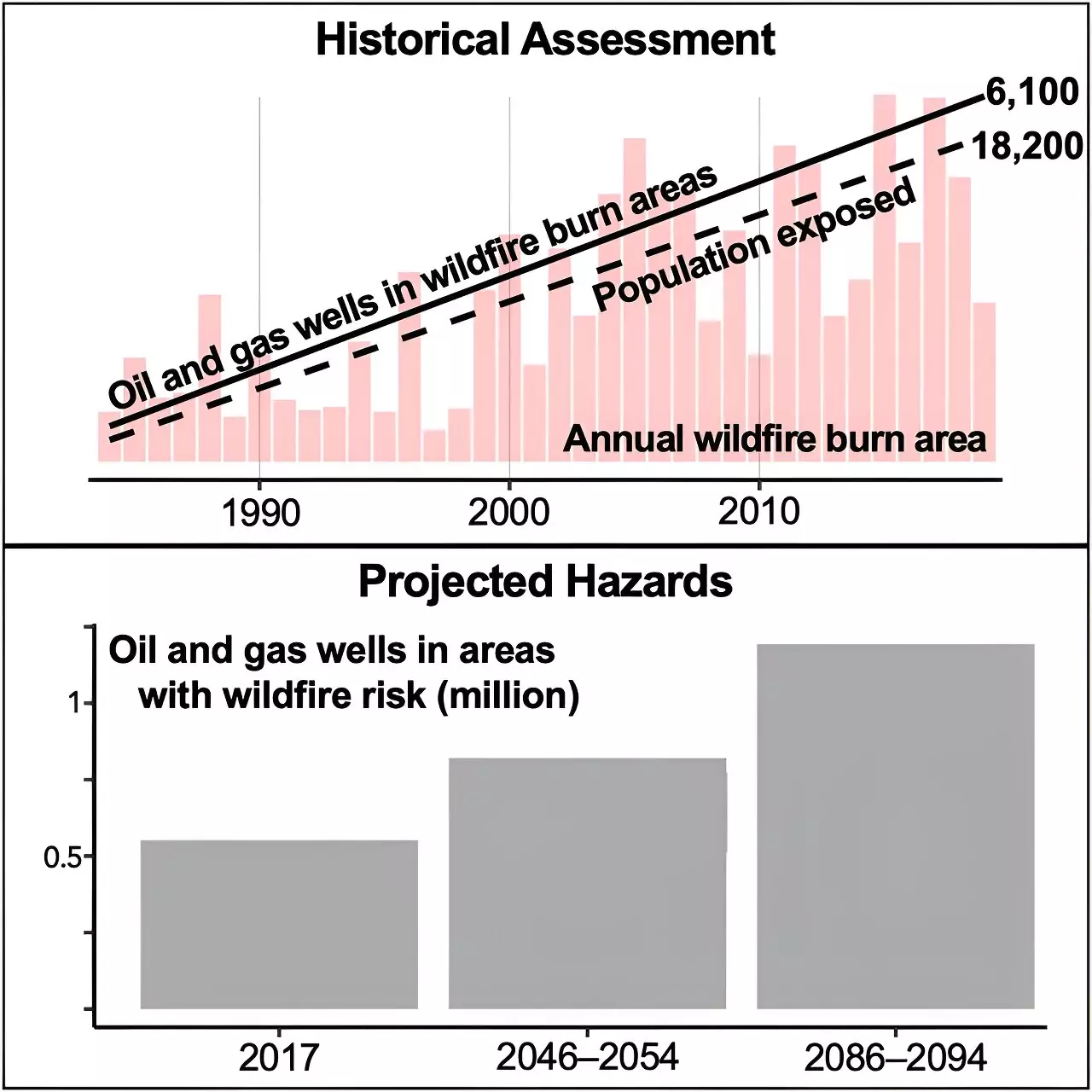The recent study from the University of California, Berkeley, highlights a troubling reality – over 100,000 oil and gas wells in the western U.S. are at risk of exposure to wildfires, with potential implications for public health and safety. While this issue has garnered significant attention, the true extent of the problem and its future implications remain largely unexplored.
The history of oil and gas development in California has been intricately linked with the threat of wildfires. As populated areas such as Los Angeles and Kern counties continue to rely on these energy sources, the risk of fires in proximity to drilling locations has become a pressing concern. The study’s findings reveal a concerning trend of increased exposure to oil and gas wells for individuals from diverse racial and ethnic backgrounds, signaling potential environmental justice implications.
Looking forward, the research indicates that the number of oil and gas wells in high-risk wildfire areas is expected to nearly double by the end of the century. This projection suggests a worrying trend of expanding drilling activities in regions at greater risk of wildfires fueled by climate change. The implications of this trend for public health, particularly for marginalized communities, cannot be understated.
While the study sheds light on the intersecting risks of wildfires and oil and gas operations, it also underscores the lack of research on the health effects of fires that burn through these facilities. The potential for toxic chemicals from oil fields to be released into the environment during fires poses a direct threat to nearby populations. The compounding impact of wildfires on oil and gas facilities represents a significant public health concern that demands further investigation and regulatory measures.
As the frequency and intensity of wildfires continue to rise, policymakers and public land managers must consider the long-term health effects of permitting oil and gas wells in fire-prone areas. The need for additional protections to safeguard both the environment and the communities living near industrial activities is paramount. Measures to mitigate risks associated with wildfires and oil and gas operations should be implemented proactively to prevent future health crises.
The study’s findings underscore the urgent need to address the intersection of oil and gas wells with wildfire risks. The compounding effects of these factors on public health, environmental quality, and community well-being require immediate attention and action. By recognizing the challenges posed by the coexistence of oil and gas operations with wildfires, we can work towards sustainable solutions that prioritize the safety and resilience of all individuals living in high-risk areas.


Leave a Reply